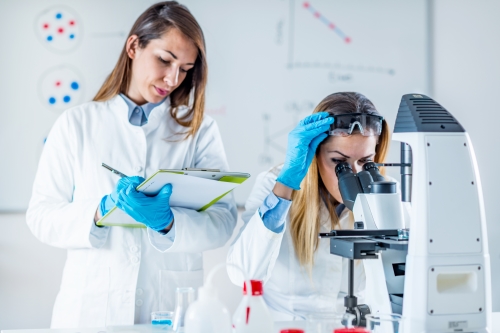“Imposing government price controls on patented products would take the fruits of the Bayh-Dole research and rip them from the hands of the inventors and investors who help transform basic research into desirable goods.”
 In this age of polarization, it’s almost impossible to imagine Congress enacting bipartisan legislation that would benefit businesses, higher education, and consumers alike. But that is exactly what happened 40 years ago, and it is worth remembering.
In this age of polarization, it’s almost impossible to imagine Congress enacting bipartisan legislation that would benefit businesses, higher education, and consumers alike. But that is exactly what happened 40 years ago, and it is worth remembering.
As has been outlined elsewhere on IPWatchdog in 1980, Democratic Senator Bayh and Republican Senator Dole wrote a bill that seemed simple, but changed the face of American innovation. Prior to the Bayh-Dole law, anyone who accepted government funding of their research had to give any resulting patent rights to the government. Superficially, that sounded fair – if taxpayer money paid for research, the taxpayer should get the benefits. But the reality was that no one benefited. Few companies had any interest in investing the substantial resources necessary to transform an early invention into a product when the underlying patents were held and controlled exclusively by the government. And those inventions that were developed simply sat on the shelf in government offices with no plans to bring them to market. Senators Bayh and Dole recognized this problem and their bill allowed research institutions to keep possession of the patent rights their research produced.
Win-Win-Win
American institutions of higher learning are among the most common beneficiaries of that policy. Universities accept government funding and do the research which private businesses may then license and further develop into products consumers want. Through this virtuous cycle, thousands of companies have been spun off from research that started at American universities. According to the Association of University Technology Managers, in 2012 startup companies coming out of 70 academic institutions generated net sales of over $36 billion and employed over 15,000 people. This is not only benefiting American consumers and our economy, but the patent licensing fees collected by universities are also funding American higher education. It is a win-win-win.
Bayh-Dole has been particularly successful in generating innovation in the health care field. It has generated an ecosystem in which companies license and develop technology and make new treatments available to patients, including treatments for breast cancer, non-Hodgkin lymphoma, and leukemia. These have all contributed to the amazing news that in 2016-17 the United States enjoyed the greatest reduction in cancer deaths on record.
Bayh-Dole was also critical to making the United States the world leader in innovation. According to the Information Technology & Innovation Foundation, in the early 1980s before Bayh-Dole funded research had time to reach the market, only about 10% of new drugs were first introduced in the United States, but today over 60% of new drugs are introduced first here. This helps American patients sooner.
Undermining Success
You might think everyone would celebrate this unqualified success story and agree to let it keep working. Unfortunately, there are political opportunists who want to raid the cookie jar and call it progress.
The Bayh-Dole law includes a safety valve called “march-in.” This allows the government to ignore exclusive patent rights on a case-by-case basis and force patent owners to license their inventions to third parties. It was meant for extreme cases and emergencies, such as where a new invention is not brought to market. Some activists and shortsighted politicians have recently indicated that, given the opportunity, they would twist that provision into a means to impose government price controls on patented products across the American economy.
There is absolutely nothing new or innovative about this bad idea. It would take the fruits of the Bayh-Dole research and rip them from the hands of the inventors and investors who help transform basic research into desirable goods. It’s a selfish and shortsighted approach that in the long run undermines the tremendous success of the law. If companies have reason to expect political opportunists abusing the march-in provision will undercut their investment, they won’t invest in improving government-funded research.
If it Ain’t Broke
The Bayh-Dole law is a bipartisan success that has helped restore American innovation and competitiveness. Messing with that success to score political points will hurt American patients, universities, and jobs, and will set American innovation policy back 40 years. It’s time for some good old American common sense: if it ain’t broke, don’t fix it.
Image Source: Deposit Photos
Image ID: 177220922
Copyright: microgen

![[IPWatchdog Logo]](https://ipwatchdog.com/wp-content/themes/IPWatchdog%20-%202023/assets/images/temp/logo-small@2x.png)

![[Advertisement]](https://ipwatchdog.com/wp-content/uploads/2024/04/Patent-Litigation-Masters-2024-sidebar-early-bird-ends-Apr-21-last-chance-700x500-1.jpg)

![[Advertisement]](https://ipwatchdog.com/wp-content/uploads/2021/12/WEBINAR-336-x-280-px.png)
![[Advertisement]](https://ipwatchdog.com/wp-content/uploads/2021/12/2021-Patent-Practice-on-Demand-recorded-Feb-2021-336-x-280.jpg)
![[Advertisement]](https://ipwatchdog.com/wp-content/uploads/2021/12/Ad-4-The-Invent-Patent-System™.png)







Join the Discussion
4 comments so far.
Moocow
February 14, 2020 02:49 pmMany members of Congress believe that the federal government invented or funded literally 100% of all new therapies over the past decades. And that private companies basically appropriated the results of that research and sell these inventions at a markup, without having contributed much, and without giving anything back to the public. It’s an astonishingly stupid narrative. In reality, public and private biomedical research both make tremendous contributions on the path from basic discovery to real-life products, and both need each other. Thank you for writing this piece.
Pro Say
February 12, 2020 06:15 pmThe potential forthcoming misuse of the above-noted march in rights reminds one . . . of the widespread misuse and misapplication . . . of the innovation-killing, great new jobs blocking, new-company formation destroying, unconstitutional Alice / Mayo.
Anon
February 12, 2020 05:37 pmTo a man with a hammer, everything looks like a nail.
Well, at least to a man with a hammer obsessed with using a hammer and not reasoning that other tools (and other topics) exist.
angry dude
February 12, 2020 02:53 pmThere is no “polarization” in US congress, dude
“Pecunia non olet”
What we really need is a Special Prosecutor to investigate and prosecute members of both parties for High Crimes against the Constitution of the United States of America … no less
There was federal prosecutor for Al Capone after all (assassinated as far as I remember…) – and Al Capone was as scary as it gets… making “offers” one just can’t refuse…
Is there ONE honest man in wash dc to go after apple, google, amazon and the rest of “donors” and their recipients in US congress (and lots of other agencies) to kill 230-year old US Patent System ???